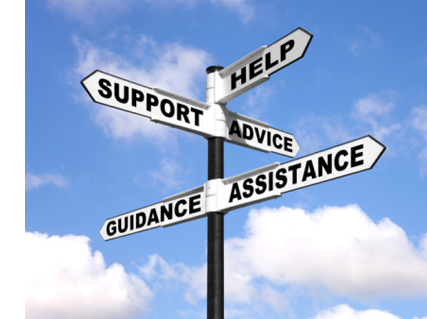Your Pregnancy Help Organization and COVID-19
If you are a Heartbeat Affiliate, please click log in at the top of the page to view more materials! Additional materials will appear below for those current affiliates who are already logged in. Click here for more information about affiliating with Heartbeat International.
You can also get a recording of our webinar series Coronavirus and Your Pregnancy Help Organization for free by clicking here. Resources related to those webinars are also available on the Complimentary Materials page here.
The information in these articles is accurate as of the publication date of each one. We are working to keep our articles up-to-date as changes surrounding COVID-19 occur, and we encourage everyone to check the CDC, WHO and their local authorities as the situation is ever-evolving.
Displaying items by tag: compassion
3 Key Tips for Increasing Cultural Competency
by Ellen Foell, International Program Specialist, Heartbeat International and Faith Bohlin, Program Manager, Aid for Women
In November 2020, Ellen Foell and Faith Bohlin engaged in an informal conversation on the topic of increasing cultural competency as part of the “Power Conversation” series. This article is a loose representation of that conversation, which is available in its entirety here.
Be humble.
- There is general cultural competency (e.g. like exercising humility and understanding that you don’t understand) as well as specific cultural competencies related to being knowledgeable about traditions, customs, and principles of specific ethnic groups. Start with general principles and then learn about the specific cultures that God has placed you in.
- Have the humility to apologize when necessary and to seek forgiveness.
- Ask permission -- Can I hug you? Can I touch your baby? It is a signal of respect and humility.
Listen very deeply and ask good questions.
- Things like volume of communication, hand gestures, pace of interaction vary significantly. Take your cues from the person you are interacting with. As Ellen Foell described it, “Listen with your eyes. Mirror what you are seeing.”
- Here are some sample questions for your consideration:
- What would normally happen in your community / culture?
- What is customary around ____ (pregnancy, birth, birthdays, etc.)?
- Can you please explain _____ to me?
- Is there a hidden consequence for moving into our program? For participating with our organization? Does it affect your family?
- Teach me your favorite food or favorite _____.
Be aware of and celebrate differences.
- Some cultures are based in honor/shame principles which affect everything from identity, family dynamics, how I present myself in my community, and more. Having an “punishment mentality” (i.e. if you do this, I will do this) with your organizational culture may have unintended consequences for those from a honor/shame based tradition.
- “I like to use the language of ‘tribe’ (i.e. we are a tribe) for our homes. A tribe is composed of multiple family units, each with their own traditions and ways of doing things. For me, that is a much more accurate description of what we are creating in our housing program,” described Faith Bohlin. Food is an easy way to explore those differences and celebrate them as a community activity.
- One effective starting place would be to investigate the “culture of poverty.” As Faith described, “It encompasses all ethnic cultures and really is a culture all to its own that has a big impact of the vulnerable women we serve.”

Recommended Resources
Ruby Payne. A Framework for Understanding Poverty and/or Bridges out of Poverty
Duane Elmer. Cross-Cultural Servanthood: Serving the World in Christlike Humility
A Compassionate, Informed Counselor Makes the Difference
 |
By Brittany Hudson, Founder of 4TheLoveofAlex.org
I sat in a cramped, overstuffed nurse’s office with clammy hands as we went over the information in front of her.
I had discovered two months earlier that I was pregnant, but when excessive bleeding and cramping sent me to the emergency room, I was hoping that I had somehow avoided an unintended pregnancy. I was referred to my doctor for a follow-up and an ultrasound the next day.
The simple test revealed a fluttering heartbeat and what seemed to be a very healthy little life resting in my womb. My doctor smiled at the monitor as I cried. I really didn’t want to go through this.
I was still swimming in grief over the loss of my husband just 10 short months earlier. My lapse in judgment over seeking comfort in the arms of another man turned into the trial of my life within the trial of my life. How could this be happening?
My doctor scheduled another appointment for me to meet with his nurse to go over my options. The time between visits gave me time to think it through.
She sat there and consoled me as I cried. When I rallied, she started talking. “Are you going to keep your baby or are you going to terminate the pregnancy?”
My mind spun with her statement. How could the same thing change terminology within the same sentence, simply depending on my ‘choice’? How did a baby become something that I could just dispose of?
I wish I was a fly on the wall for what came next. “No, I am seeking adoption for this child.” I said, looking down at her paperwork. I watched her face go chalky as she drummed her fingers on the desk. She slowly turned her chair around to the rack of information behind her, knowing she didn’t have anything to offer me. Her sighing told me what I already knew. I was on my own.
“I don’t know what to tell you. I don’t have anything for you to take. I have never been in this situation before. Why don’t you go on the internet and see if you can find an agency in the area.” Her nervousness came through her voice as she tried to avoid direct eye contact with me. I left her office after a few exchanges and a follow-up appointment scheduled.
I left with nothing but a card with a date on it.
The internet seemed daunting. Who was reputable? Who was in my area? I didn’t know anyone who had gone through this before. Could I trust an agency? What if they wanted to make me sign something right away? What are my rights?
I found a site and read what they had to say, but I then discovered I was at least 14 hours from their nearest location. They referred me to Bethany Christian Services, where I called and left a message for someone to return my calls. I then prayed to God that I wouldn’t be lied to or talked into something I wasn’t ready for.
Facing the fact that I was pregnant was hard enough. Even though I knew what I wanted to do, I also know that it would have made a world of difference to have someone who knew me come alongside to tell me about what I’d decided before I had to launch headlong into a dialogue with an adoption agency.
I wished the nurse had known as much about choosing to parent and parenting through adoption as she had about abortion. It would have eased my mind and helped curb my fears.
My adoption went just fine. In fact, it went as well as I could have hoped, even though it was very difficult to go through.
The things I’ve learned for myself, and the experiences I went through have come together to form a ministry for the woman who chooses adoption for her unborn child. I give these women what I wished I had—a listening ear, independent guidance, direction, and the very real hope of restoration in Christ in the midst of an unintended pregnancy.
The women I’ve mentored so far have all come from agencies who see the value in coupling an expectant mother with a birthmother who has lived the experience of an unintended pregnancy for herself.
There is peace in being able to relate to someone and help them see there is a life after the trial. It is my joy to see that God uses the most painful things in life to create something beautiful. And He does so wonderfully.
What's love got to do with it?

Tina Turner got it wrong.
When answering with the question, "what's love got to do with it?" she called it “a second-hand emotion." No way. In the Christian walk, love is both the ultimate goal (being unified in Love with God) and the way to get there (loving God and our neighbor).
In our homes, the demands of love are a constant invitation to show up, speak up, and lift up. Here’s a few ideas for how you live and love incarnationally within the work of maternity homes—loving tough, yet unconditionally.
Love as a Invitation to Perfection (Tough Love)
- Notice the small movements of growth in others. Don't overlook even the seemingly smallest advances in the lives around us. Often progress is very subtle!
- Ground yourself in the dignity of every person. It’s especially important to remember that when dignity isn't being shown!
- Foster willingness to hear feedback and admit your mistakes. Be an example of openness even as you pursue growth in holiness. You’re not perfect, and you’re not expected to be, so live in the freedom that comes with admissions and apologies.
- When you have to correct, speak out of a calm, reflective place. Refuse to speak from an angry, reactive place. When you do correct, ask God to purify your motives, so that your correction is truly correction, not frustration masquerading.
- Recognize the power of timing. Are you and the other person able to have a meaningful conversation right now? Or, are other circumstances (anger, hunger, loneliness, fatigue) affecting the exchange?
Love that Sees through Brokenness (Unconditional Love)
- Grow in your ability to give and receive forgiveness. Let mercy gush out of you.
- Love your imperfections—they are part of your humanity. But, don't coddle them. Instead, always be stretching past them. Allow others to have imperfections as well. They’ll have imperfections either way, so better get used to them!
- In a maternity home, the mothers need to be able to relax and be themselves. Yes, there are battles to fight. But, choose each battle wisely. Your goal with each mom is to create an environment where they can open hearts and breathe deeply.
- Because each person has a different set of challenges, we’re stronger operating as a team or community. Create an environment where each individual functions out of her strengths, and where the community protects each other’s area of weakness.
- Love is a moving target—sometimes it requires giving, other times receiving. Sometimes it requires action, other times inaction. Stay attuned!
There is a spiritual insight that suffering expands one's capacity to love. The women who join our homes have often known great suffering—some due to their own decisions and some due to the horrific decisions of others.
We have the noble challenge of trying to help each mother understand that the heartache of their lives can produce a bedrock strength and a beautiful ability to love deeply. Starting with themselves and their children.
As we exercise compassion—literally, suffering with—the moms, we too are being perfected in love!
by Mary Peterson, Housing Consultant

